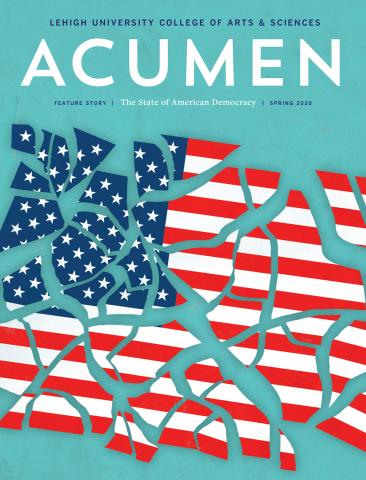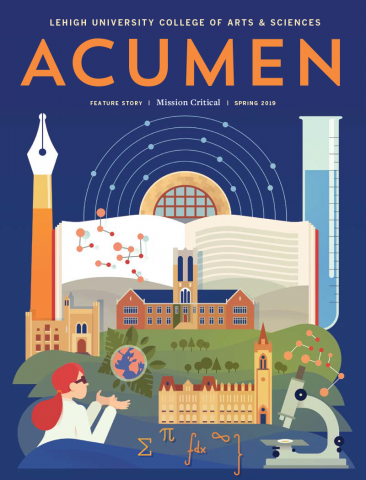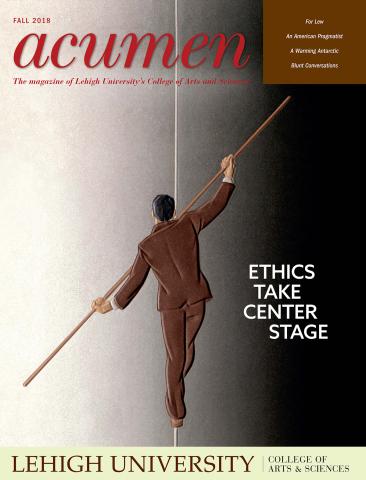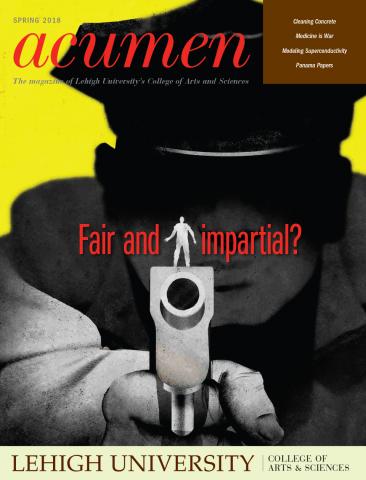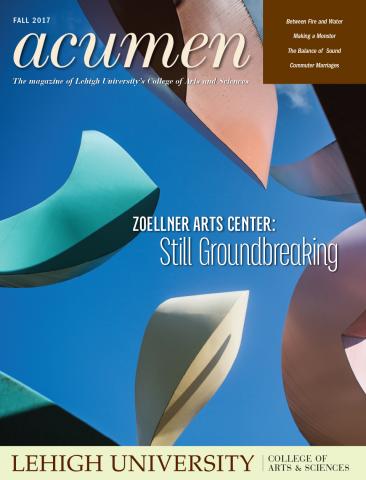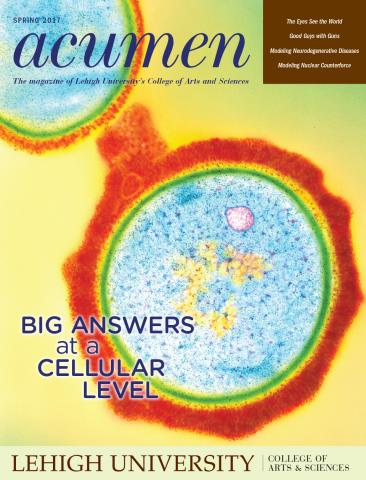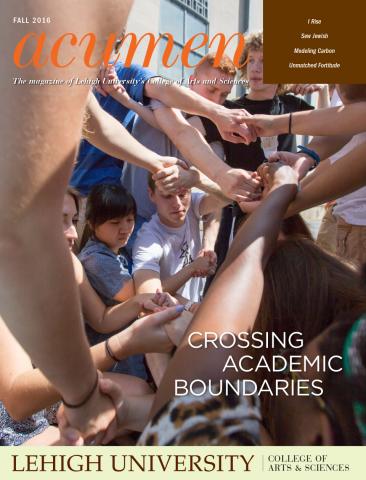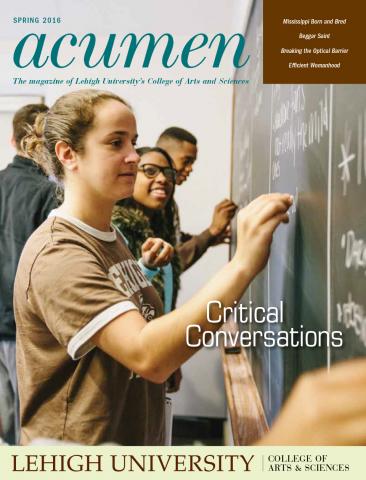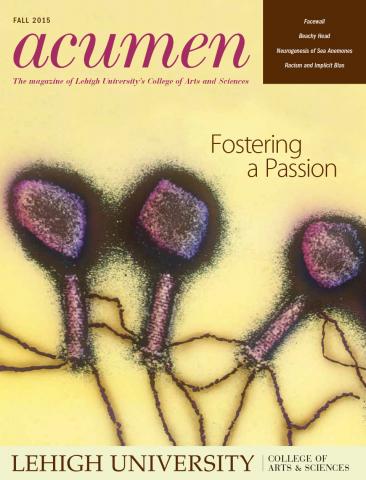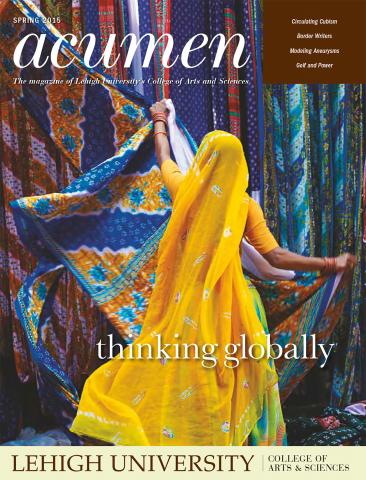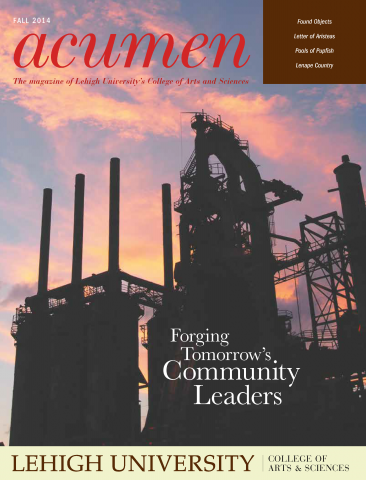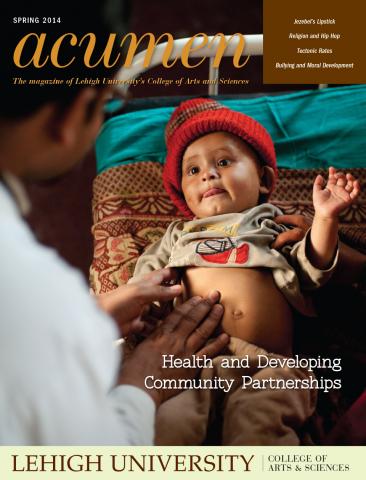
It happens every day. A husband blames his wife for her perceived shortcomings. Workers blame a supervisor for his office bullying. One social group blames another for the social problems in their community. Sometimes, blame can be constructive and can motivate its target to change. All too often, however, blame is overly harsh. Harsh blame can be detrimental to relationships and is the focus of research by Michael Gill.
“Blaming permeates every type of human relationship,” says Gill, associate professor of psychology. “Whether it’s intergroup or interpersonal, the way we handle situations in which we disapprove of another’s behavior has a tremendous impact on relationships and on society.”
Gill’s Blame Lab examines how harsh, spiteful blame can be shaped into something calmer and more constructive. At the core of his work is the historicist narrative. He defines a historicist narrative as a storied account of the life history of a wrongdoer, which explains his or her acquisition of disagreeable traits in terms of an unfortunate life history.
“The story provides an understanding of the process by which a person or group came to have some objectionable quality,” he says. “Historicist narratives are quite effective at removing harshness from blame responses.”
To date, Gill’s published work has centered on demonstrating that historicist narratives can temper blame (other researchers had cast doubt on this possibility) and on providing a thorough examination of why they do so. He has shown, for example, that perceptions of the extent of the transgressor’s prior emotional suffering and perceptions of the degree of intentionality behind his bad actions cannot account for the effect of historicist narratives.
So what does?
Gill focuses on perceptions of free will and makes the novel argument that everyday people utilize two distinct free will concepts: freedom of action and control of self-formation. Freedom of action refers to a person’s “in the moment” capacity to choose actions (e.g., Can she choose to do either X or Y at this moment?). Existing theories focus on this concept. In contrast to freedom of action, control of self-formation refers to whether a person is the architect of her stable, dispositional will (e.g., Is she the creator of her stable tendency to be hypercritical?). Gill’s research finds that historicist narratives have no effect on perceived freedom of action. Narratives mitigate blame when they reduce perceived control of self-formation.
Funded by a College of Arts and Sciences New Directions Fellowship, Gill’s research is now taking his lab work into real-world contexts. As one part of this project, graduate student Stephanie Cerce will study blame within married couples. She will have one partner identify an aggravating characteristic of the other. After identifying the characteristic, some partners will be induced to generate a historicist narrative about it, whereas others will not. The goal is to examine whether narrative generation impacts the quality of subsequent communication between the partners (e.g., is it more supportive, less hostile?). Other planned activities include trying to understand when and why jurors—in realistic “mock jury” contexts—will be receptive to historicist narratives regarding criminal offenders. Existing research suggests that jurors are often dismissive of such narratives. This work will have implications for how to bring an element of mercy into the criminal justice system, which existing evidence suggests has beneficial effects on important outcomes such as criminal recidivism.





















